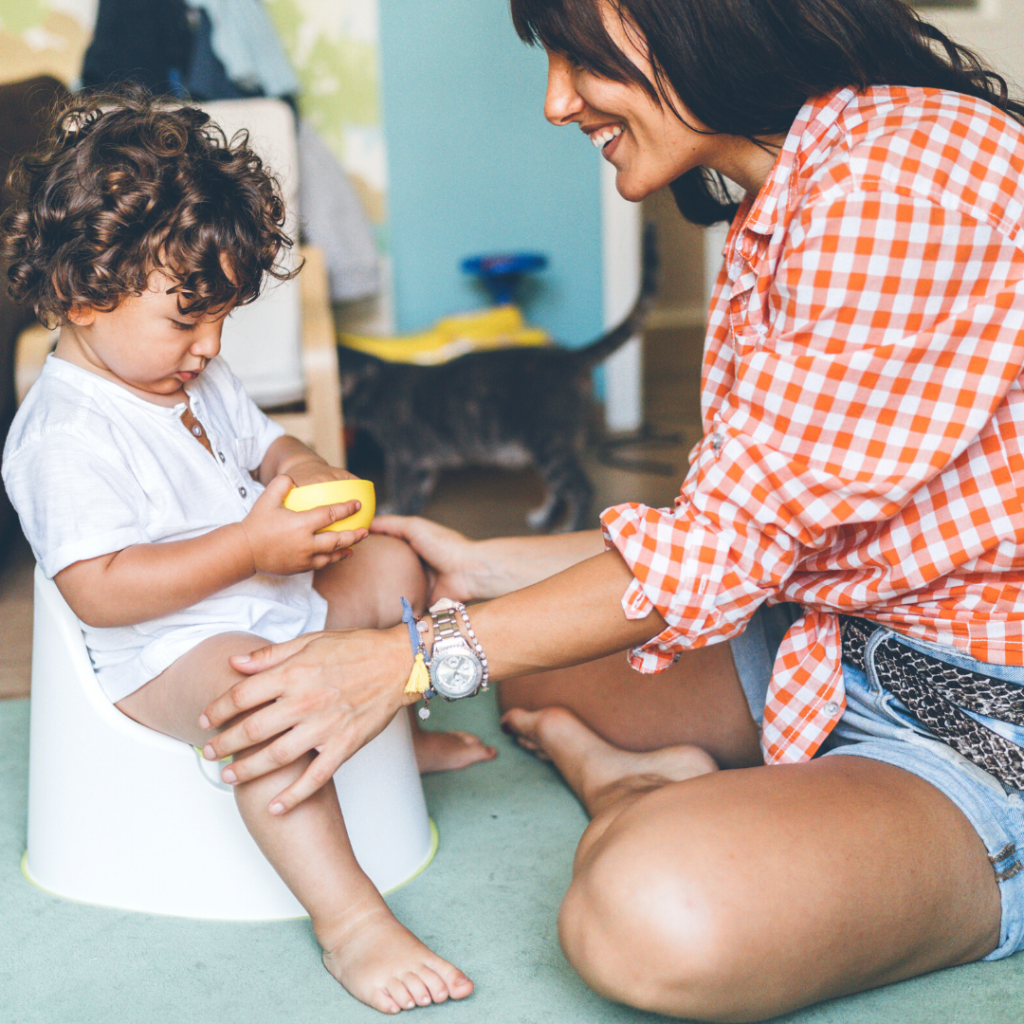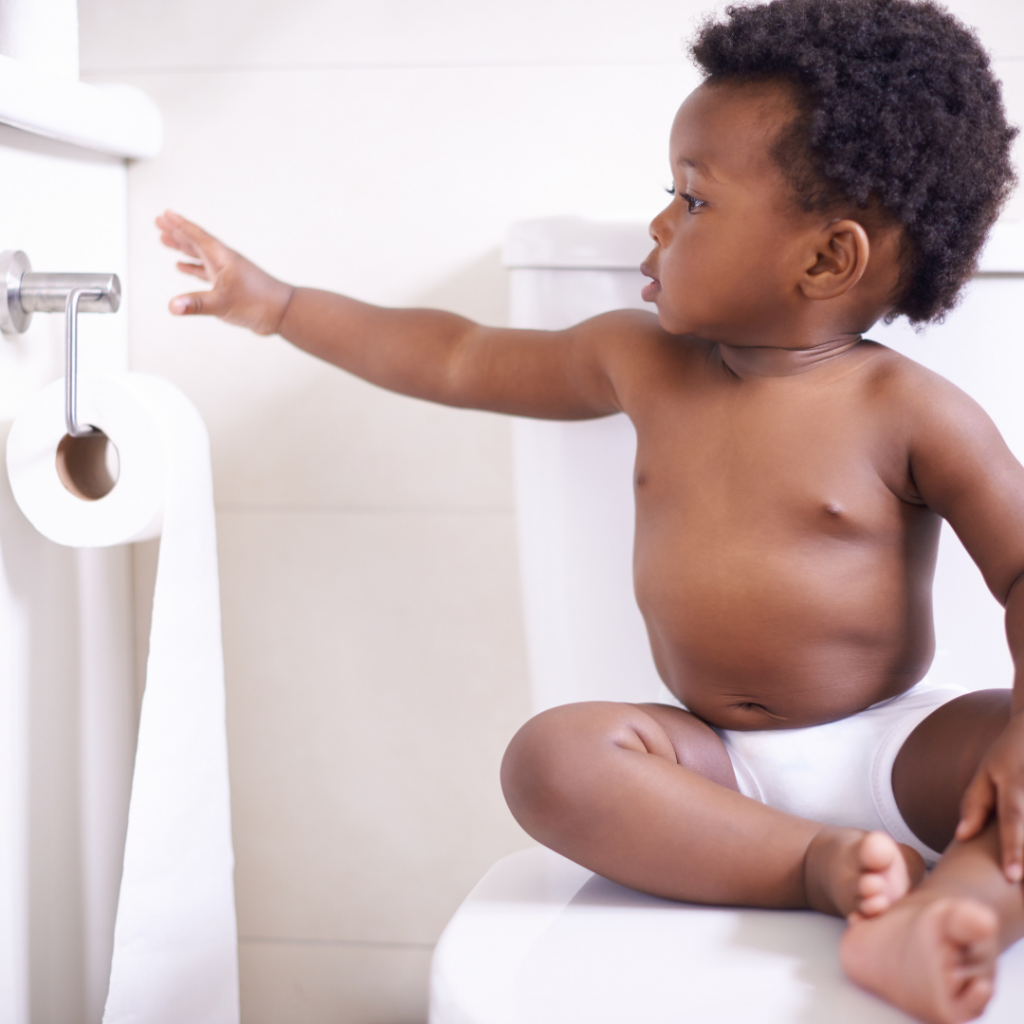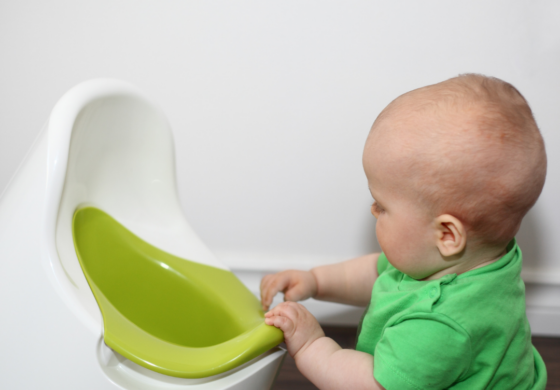The simple answer is around age 3. The long answer involves explaining how our bodies develop and all the systems that must mature in order to achieve this milestone.

When we’re born, our bladder works in a direct 2-way loop with our spinal column. As our bladder fills with urine, stretch receptors will sense the expansion. Once our bladder reaches its maximum capacity, the stretch receptors will send a signal to the spinal column which sends a signal directly back saying to empty. In infancy, children do not feel any component of this process or experience any urge to empty. It happens automatically without any sensation or input.

Early Development Formation
Between the ages of 1 and 2, our brain begins to enter this loop but not with full control yet. During this phase of development, the bladder will fill with urine and the stretch receptors will send a signal up the spinal column to the brain. At this point, the brain is unable to do more than register the urge. The spinal column is still in control of telling the bladder to empty. Between the ages of 2-3, the brain now fully enters into this newly formed 3-way loop and has the ability to both sense the urge and decide to hold or empty. This complete loop may take a full 3 years to develop in some children.
The Nervous System Plays a Big Role
Once a child’s central nervous system has developed enough that they are physically ready to potty train, they must also be emotionally and cognitively ready for this next step. Do they tell you when they peed or pooped, either before or after the event? Are they interested in following you to the toilet and sitting on theirs? Are they willing to interrupt fun activities to go sit on the potty? Do they have any major stressors in their life such as new schools or new siblings that are affecting their daily routines? Are they able to identify their body parts so they can be an active participant in this process? Do they struggle with constipation?

Always Remember: Every Child is Different
Every child is different and some children may truly be ready to potty train around the age of 2 or 2 ½. But typically, most children do not have the physical AND cognitive maturation necessary to successfully potty train until 2 ½ to 3 years of age. Starting too soon can result in unhealthy holding habits that lead to constipation, stomach aches, and urine/fecal leakages that can last for years to come. The closer you can wait until the age of 3, the easier and less stressful this transition will be and the less likely the child will be to develop unhealthy toileting habits.
If you have more questions or are interested in learning about our incredibly successful Tiny Toilets program, schedule a free consultation with our pelvic floor specialist! With reassurance, support, and understanding, your child can look forward to dry nights.

